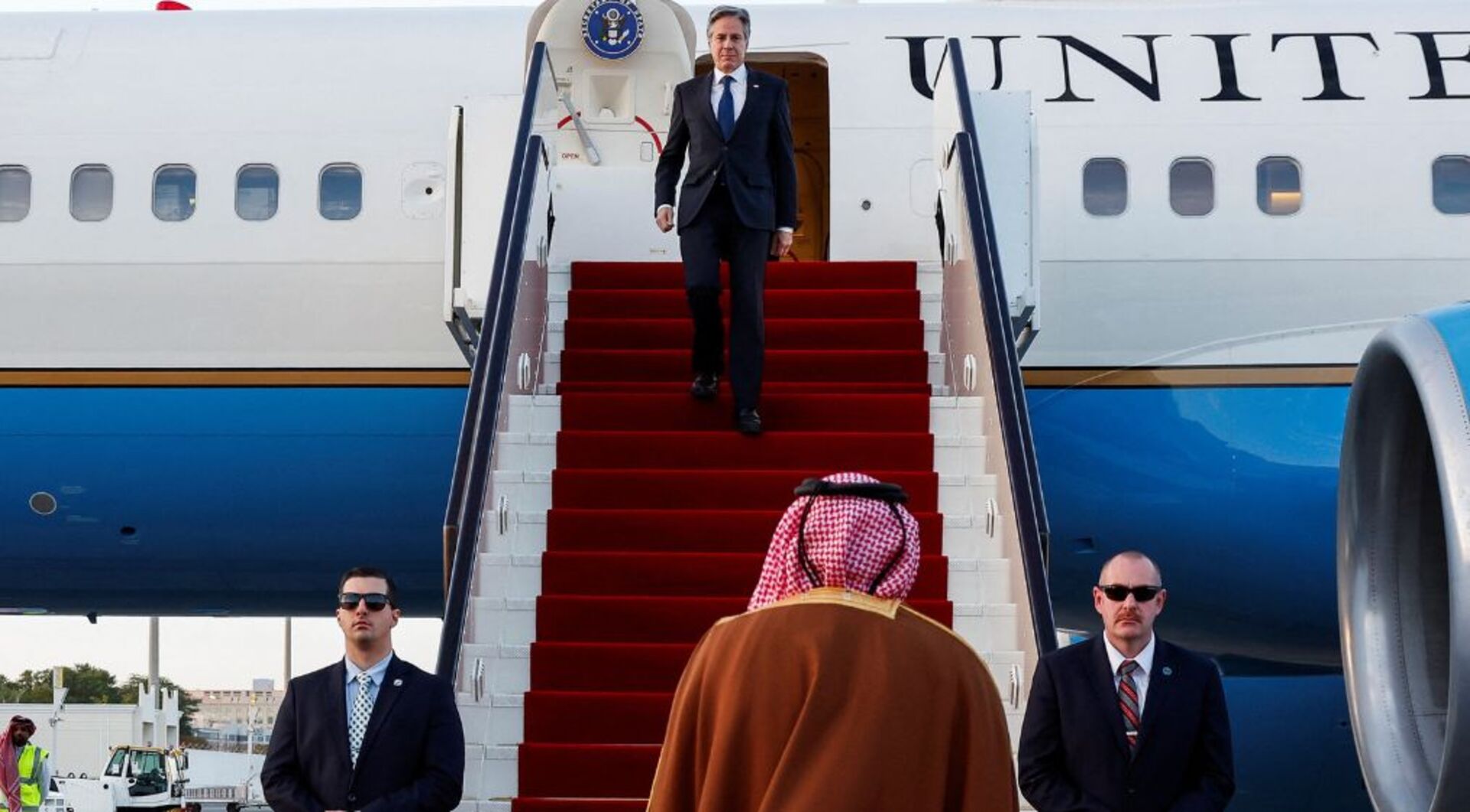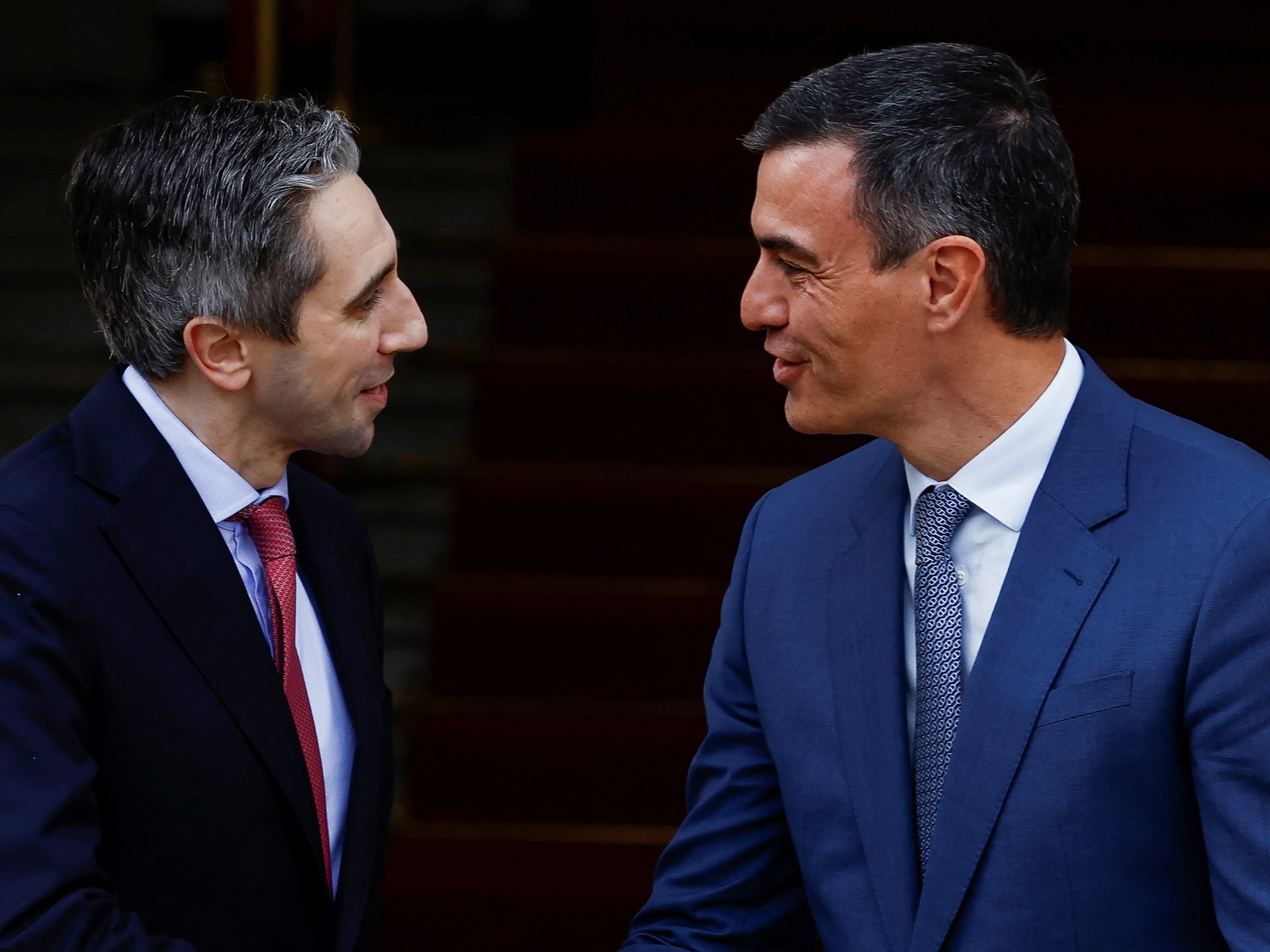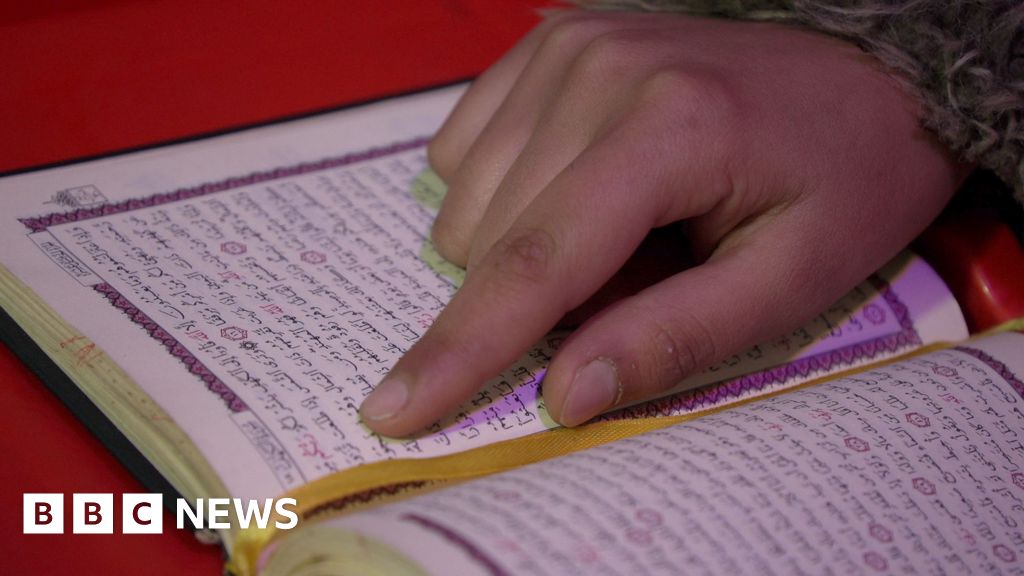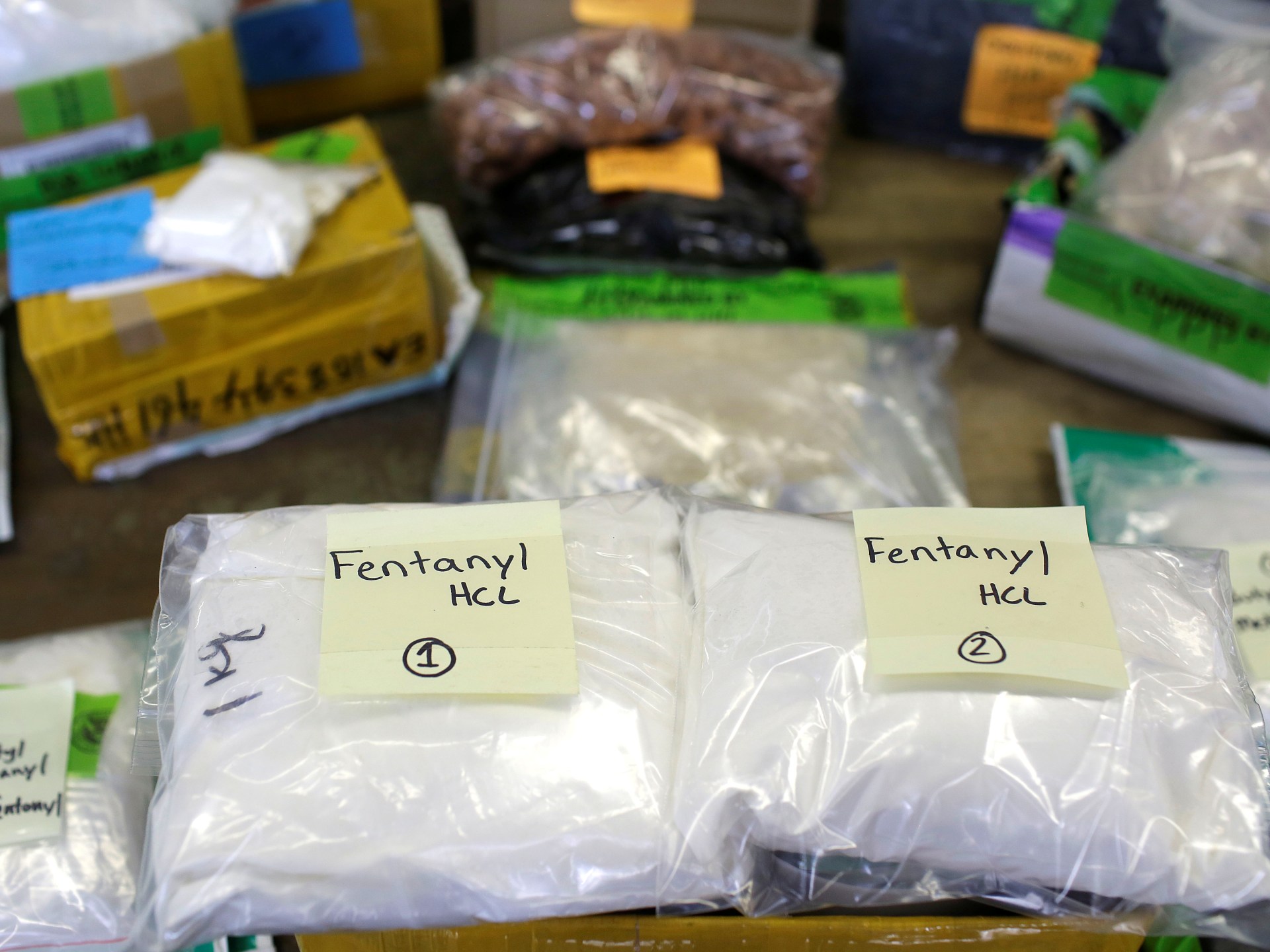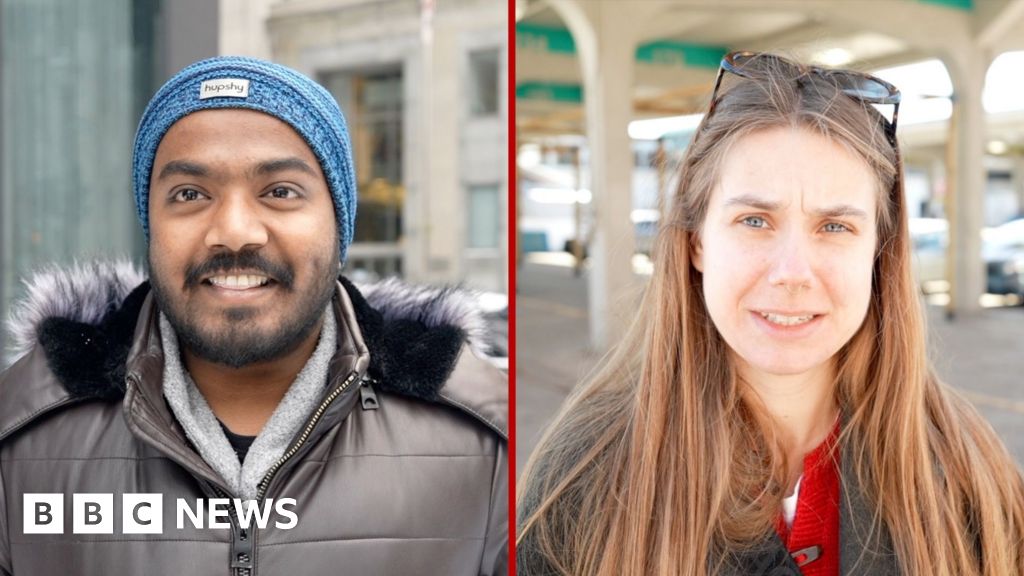Could Marxist Anura Dissanayake become Sri Lanka’s next president? | Politics
Colombo, Sri Lanka – It was an unlikely invitation from the Indian government.
In early February, Anura Kumara Dissanayake visited New Delhi to meet the South Asian giant’s foreign minister, national security adviser and senior diplomats.
The 55-year-old Sri Lankan politician is not in government. National People’s Power, the political alliance he leads, isn’t even the principal opposition. It has only three seats in the country’s 225-member parliament, where it’s the fourth-largest force. And his party has often been seen as close to China, India’s principal geopolitical rival.
But for months now, Dissanayake has enjoyed a different kind of authority within Sri Lankan politics, which has in turn earned him recognition as a rising political force even from regional superpower India.
He is a surprise top contender for the country’s presidency, when the Indian Ocean island votes on September 21. Some opinion polls even suggest he could be the frontrunner, among a crowd of 38 candidates.
It’s a lineup littered with familiar faces from the country’s most prominent political families: Namal Rajapaksa, the eldest son of former President Mahinda Rajapaksa; Sajith Premadasa, the son of another former president, R Premadasa; and incumbent President Ranil Wickremesinge, a nephew of the country’s first executive President JR Jayewardene.
Dissanayake stands out among that set: He is the leader of the Janatha Vimukthi Peramuna (JVP), a party that has never previously been close to national power and that twice led Marxist insurrections against the very state Dissanayake now wants to rule.
The turning point for the party and the NPP, the coalition it leads, came in 2022, when the country’s economy collapsed, leading to widespread shortages of essential goods and skyrocketing inflation.
A mass protest movement – known as the Aragalaya [Sinhalese for ‘struggle’] – against the ruling government forced then-President Gotabaya Rajapaksa’s resignation after his brother Mahinda, the prime minister, also had to quit. The brothers were forced to flee an angry nation.
Though no political party officially claimed the leadership of the Aragalaya movement, the JVP played an active role, holding daily protests, erecting tents in Colombo’s picturesque Galle Face and organising general strikes. The power vacuum created by the resignation of the Rajapaksa brothers paved the way for Dissanayake and the JVP to amplify calls for broader change, attracting disillusioned citizens to their advocacy for social justice and against corruption. From the margins, the party grew into a credible, major political force. And Dissanayake’s personal appeal has soared with his party’s.
“I see he is honest in attempting to change the system,” writer and political analyst Gamini Viyangoda told Al Jazeera. Viyangoda is a co-convenor of the Purawesi Balaya civil society movement that campaigns for democratic reform in Sri Lanka.
“When he says he’d close the doors to corruption, I believe he means it. Whether he’d manage to do it or not is another matter, but I haven’t seen this genuineness in any other political leader,” Viyangoda said.
From insurrection to popular appeal
Born in a rural middle-class family in the village of Thambuttegama, 177km (110 miles) from the capital Colombo, in Sri Lanka’s Anuradhapura district, Dissanayake graduated with a science degree from the University of Kelaniya.
He had been involved with the JVP since his school days and first became a member of parliament in 2000.
Dissanayake was appointed the JVP leader in 2014 and has since tried to reimagine the party’s image as distinct from its violent past.
In 1971 and then in the late 1980s, the party had led failed Marxist-inspired insurrections. The armed uprising launched by the JVP in 1988-89, calling for the overthrow of what they saw as the imperialist and capitalist regime of Presidents JR Jayawardene and R Premadasa, became one of the bloodiest periods in Sri Lankan history.
Widespread killings and political assassinations, unofficial curfews, sabotage and strikes called by the JVP were the order of the day. The JVP’s victims – the Marxists are believed to have killed thousands of people – included intellectuals, artists and trade unionists in addition to political opponents. The state retaliated by brutally crushing the rebellion with mass arrests, torture, abductions and mass murder. At least 60,000 people were killed in the government crackdown, including most senior JVP leaders, among them its founder Rohana Wijeweera.
Dissanayake was appointed to the JVP politburo after the failed insurrection when the party abandoned violence and turned to electoral democracy.
Speaking with the BBC in May 2014, soon after he became the leader of the JVP, Dissanayake apologised for the party’s past crimes. It was the first and the last time ever that the JVP has apologised for the violence it had unleashed on Sri Lanka in its earlier avatar.
Criticised by some members of the party and by sections of the Sri Lankan left for apologising, Dissanayake has since been more careful in framing the past. He has since expressed regret several times but has stopped short of apologising again.
To be sure, the past still haunts the JVP and the country. Wickremesinge, now president, was a senior minister in Premadasa’s government at the time of the JVP insurrection in the 1980s, and is still battling accusations that he played an active role in the crackdown. Meanwhile, many older Sri Lankans haven’t forgotten the JVP’s terror either.
Still, Dissanayake, say analysts, has managed to build a broad coalition of sections of society that were once among the JVP’s targets – intellectuals, artists, retired police and military personnel and trade unions among them. The party’s biggest plank: A promise to tackle corruption.
“I think it is wrong to slam JVP for what they did in 89-90,” Viyangoda said. “Because what we see today is not the same JVP that was in the 1980s.”
That’s precisely what Dissanayake will hope Sri Lanka believes when it votes on September 21, for he is up against the odds.
Since independence in 1948, the country has been led by the two dominant political groupings, the United National Party (UNP) and the Sri Lanka Freedom Party (SLFP), alliances led by them, or by breakaway factions.
That is the stranglehold Dissanayake will need to break in order to become president.
Cover up for Sinhala Buddhist racism?
But for all of Dissanayake’s big-tent approach to building a popular anticorruption coalition in the wake of the 2022 protests, the JVP’s troubled past with another major community also clouds its present and future.
The JVP has long been against any intervention in Sri Lanka by India. It viewed the Tamil separatist movement that also tore apart the nation from the 1980s until 2009 as linked to India’s influence over the country.
In fact, India sent troops to Sri Lanka to fight the Tamil rebels alongside Colombo from 1987 to 1990. Separately, New Delhi convinced Colombo to accept what is known as the 13th Amendment of Sri Lanka’s constitution, aimed at the devolution of some powers to provincial councils.
Even though it had itself taken up arms against the state previously, the JVP opposed the Tamil rebel movement because of its goal of a separate nation that would divide Sri Lanka. In the 2000s, as Sri Lanka under then President Mahinda Rajapaksa crushed the Tamil separatist movement, the JVP backed the government.
Dissanayake has said he does not regret supporting the Rajapaksa government’s war against the Tamil Tigers, the Tamil militant group leading the rebellion.
Sri Lankan Tamils and sections of the international community have long been asking for accountability for alleged war crimes committed during the civil war. Accusations include extrajudicial executions, indiscriminate shelling on civilian targets including hospitals, forced disappearances, mass civilian killings, torture, sexual violence and denial of humanitarian aid.
But the JVP-led National People’s Power has ruled out any such investigation. The NPP will not seek to punish anyone accused of rights violations and war crimes, Dissanayake has said. Instead, he has suggested establishing a mechanism, perhaps in line with South Africa’s Truth and Reconciliation Commission, to find out what happened during the civil war.
“They [the JVP] have firmly fixed on the ‘Unitary State’ and no clear position on 13th Amendment,” writer and analyst Kusal Perera said.
Since its enactment in 1987, the 13th Amendment to the constitution has yet to be fully implemented. The amendment paved the way for police and land powers to be devolved to provincial councils, but no president has followed through on its implementation, fearing political opposition from critics who have argued that it could lead to the creation of a separate state in the north by the Tamil separatists.
Dissanayake has “absolutely no democratic stance other than covering their Sinhala Buddhist racism by saying they stand for unity”, said Perera, adding he “has never publicly condemned any ethno-racist extremism”.
“A racist party when it was formed by Wijeweera in 1968,” according to Viyangoda, the JVP has historically identified itself with the Sinhala Buddhist ideology and its rhetoric reflects the concerns of Sri Lanka’s majority community. As a result, it draws support from rural Sinhala Buddhist youth – including by tapping into anti-elite and anti-imperialist sentiments.
A ‘pro-trade approach’
Yet, as Sri Lanka gets ready to vote, no issue is as central to the country as the state of the economy.
In April 2022, the Sri Lankan government announced that it was defaulting on its debt for the first time since independence. After succeeding Gotabaya Rajapaksa, President Wickremesinge secured a financial package from the International Monetary Fund (IMF) in an attempt to get the country’s economy back on track.
While some analysts and Wickremesinge’s supporters commend the agreement with the IMF, Dissanayake has said that the JVP may try to renegotiate it to make it less painful for many ordinary Sri Lankans.
Following the agreement, the government introduced tax hikes, subsidy cuts and public sector reforms, which increased the cost of living and reduced social welfare support. Higher taxes and reduced subsidies, especially on essentials like fuel and electricity, have disproportionately affected low and middle-income families.
Dhananath Fernando, CEO of Advocata Institute, a Colombo-based pro-market think tank, says Dissanayake’s current economic policy represents a significant shift from his traditional socialist stance.
“He now advocates for a pro-trade approach, emphasising the simplification of the tariff structure, improving the business environment, reforming tax administration, ending corruption and positioning the private sector as the engine of growth,” Fernando told Al Jazeera. “However, his stance on debt negotiations remains unclear.”
Dissanayake has, though, “expressed a commitment to staying within the current [IMF] programme”, Fernando said.
The Institute of Political Economy (IPE), a left-leaning think tank, has meanwhile called for Sri Lanka’s 17th IMF agreement to be renegotiated. A spokesman for the IPE, who did not wish to comment on individual candidates or their policies, told Al Jazeera: “Renegotiating the IMF agreement is imperative for Sri Lanka’s economic recovery and future stability. The current conditionalities are not aligned with best practices and pose significant risks to the country’s fiscal health and social wellbeing.”
For whoever becomes the next president of Sri Lanka, the IPE’s advice is: “A restructured agreement with the IMF that includes substantial debt reduction, realistic fiscal targets, and respect for Sri Lanka’s sovereignty over its economic policies will provide a foundation for sustainable growth.”
Is Dissanayake the candidate who can best deliver on those goals? And is that what voters want? Sri Lanka will answer those questions on September 21.
Check out our Latest News and Follow us at Facebook
Original Source


